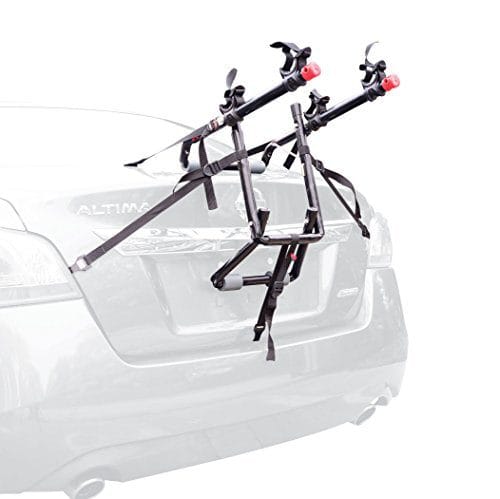What Does Automotive Service Mean? Unveil the Essentials!
Automotive service refers to the repair, rental, and maintenance of vehicles, including cars and trucks. It encompasses various services such as body shops, transmission shops, tire stores, and car washes, among others.
In a legal context, automobile service includes the sale of goods and provision of services necessary for operating and maintaining vehicles, such as selling petroleum products, battery replacement, and minor repairs. It does not cover major maintenance activities. The term “automotive service” should not be confused with “automotive repair,” which typically refers to fixing unexpected problems or replacing specific parts.
It is important to understand the distinction between the words “service” and “repair” when dealing with automotive issues.
Introduction To Automotive Service
Automotive service encompasses repair, rental, and upkeep of vehicles, including cars and trucks. It also includes body shops, transmission shops, lubrication and emissions centers, tire stores, car washes, auto glass shops, and car rentals. In a legal context, automobile service involves the sale of goods or provision of services necessary for vehicle operation and maintenance, such as petroleum products, tire services, battery replacement, minor repairs, and lubrication services.
Automotive service involves routine maintenance like oil changes, tire rotations, and fluid level refills, as well as major vehicle repairs. It plays a crucial role in ensuring the smooth operation and longevity of vehicles, covering a wide range of services required for vehicle upkeep and functionality.
Over time, automotive service has expanded to include advanced technologies and innovative intelligent transport systems (ITS). This evolution reflects the changing needs and demands of modern vehicles, emphasizing the importance of staying up-to-date with the latest advancements in automotive maintenance.
Core Services Offered
Automotive service encompasses repair, rental, and upkeep of vehicles, including both cars and trucks. It includes services such as body shops, transmission shops, lubrication and emissions centers, tire stores, car washes, auto glass shops, and car rentals. Routine maintenance involves oil changes, tire rotations, and fluid level refills. Major repairs and overhauls are also part of automotive service, addressing unexpected problems like replacing shocks, mufflers, or rebuilding transmissions.
Specialized Service Categories
Automotive service encompasses a wide range of specialized categories, including transmission and engine specialists, and auto body and paint services. Transmission and engine specialists focus on diagnosing and repairing issues related to a vehicle’s transmission and engine systems. They are equipped with the expertise and tools necessary to address complex mechanical and technical challenges. On the other hand, auto body and paint services are dedicated to restoring the visual appeal of vehicles, addressing dents, scratches, and other cosmetic imperfections. These professionals also specialize in paint application and color matching to seamlessly blend repairs with the original vehicle finish.
Additional Automotive Services
An automotive service involves the repair, rental, and maintenance of vehicles, including cars and trucks. It also includes services such as body shops, transmission shops, lubrication and emissions centers, tire stores, car washes, auto glass shops, and car rentals. Tire and wheel services are one of the most important services that fall under automotive services. It includes tire installation, repair, rotation, and alignment. Auto glass and windshield solutions are another important service that automotive service providers offer. It involves the repair and replacement of windshields and other windows in the vehicle.
The Significance Of Regular Maintenance
An automotive service refers to the repair, rental, and maintenance of vehicles, including cars and trucks. This includes various services such as body shops, transmission shops, lubrication and emissions centers, tire stores, car washes, auto glass shops, and car rentals. Regular maintenance is significant for the longevity and performance of a vehicle. Preventative measures like routine maintenance, such as oil changes, tire rotations, and fluid level refills, can save a vehicle owner from costly repairs in the future. Major vehicle repairs, fuel stations, car washing and detailing are other examples of automotive services. It is important to note that automotive service is different from automotive repair, which refers to fixing unexpected problems like replacing shocks, mufflers, or rebuilding transmissions.
Technological Advancements In Service
Automotive service refers to the repair, rental, and maintenance of vehicles such as cars and trucks. It includes various services like body shops, transmission shops, car washes, and tire stores. Automotive service ensures the proper functioning and upkeep of vehicles for optimal performance.
| Technological Advancements in Service |
| With the constant evolution of technology, the automotive service industry has also been impacted. Diagnostic tools and techniques have become more sophisticated, allowing technicians to quickly and accurately identify issues with vehicles. This not only saves time but also reduces the risk of misdiagnosis. Additionally, intelligent transport systems have been implemented to improve traffic flow and reduce accidents. These systems use advanced sensors and communication technologies to provide real-time information to drivers and traffic management centers. Overall, these technological advancements have greatly improved the efficiency and safety of automotive service. |
Understanding Service Vs. Repair
Understanding the difference between automotive service and repair is essential. Automotive service refers to the maintenance and upkeep of vehicles, including routine tasks like oil changes and tire rotations, while automotive repair involves fixing unexpected problems, such as replacing parts or rebuilding the transmission.
| Understanding Service vs. Repair |
|---|
| Automotive service refers to the maintenance and upkeep of vehicles, while automotive repair involves fixing unexpected problems. Scheduled service benefits include increased vehicle longevity and improved performance. Unforeseen repairs and emergency services, on the other hand, are necessary when a vehicle breaks down or experiences a malfunction. Examples of automotive services include routine maintenance like oil changes and tire rotations, major vehicle repairs, fuel station services, car washing and detailing, and auto glass repairs. Automotive service does not include major maintenance activities like rebuilding transmissions or replacing shocks. It is important to understand the difference between service and repair to properly maintain and care for your vehicle. |
Selecting The Right Service Provider
Selecting the right automotive service provider is crucial for the maintenance and repair of your vehicle. From routine maintenance to major repairs, a reliable service provider offers a range of services to keep your car in top condition. With their expertise and quality service, you can ensure the longevity and performance of your automobile.
Certifications And Qualifications
When selecting an automotive service provider, it’s crucial to consider their certifications and qualifications. Look for technicians who are certified by reputable organizations such as ASE. This ensures that they have the necessary skills and knowledge to perform quality work on your vehicle.
Customer Reviews And Reputation
Checking customer reviews and the overall reputation of a service provider is essential. Look for feedback from previous customers to gauge the quality of service and the overall customer experience. A provider with positive reviews and a strong reputation is more likely to deliver satisfactory results.
Legal And Safety Considerations
Automotive service, in a legal context, encompasses the repair, rental, and upkeep of vehicles, including cars and trucks. It also includes body shops, transmission and emissions centers, tire stores, car washes, auto glass shops, and rentals.
Regulations and compliance are vital aspects of automotive service, with considerations for warranty and service contracts being of utmost importance. Compliance with legal standards is crucial in providing automotive services.
Future Of Automotive Service
Automotive service encompasses the repair, maintenance, and overall care of vehicles, including cars and trucks. This includes body shops, transmission and emissions centers, tire stores, car washes, auto glass shops, and car rentals. In a legal context, it may involve the sale of goods or provision of services necessary for vehicle operation and maintenance, such as selling petroleum products, tire services, battery replacement, minor repairs, and lubrication services. Automotive service differs from automotive repair, which addresses unexpected problems like replacing shocks, mufflers, or transmission rebuilding. With the rise of electric and hybrid vehicles, the automotive service industry is witnessing significant changes and advancements. Industry trends and predictions indicate a shift towards specialized electric and hybrid vehicle services, as the future of automotive service continues to evolve.
Frequently Asked Questions
What Is The Meaning Of Automotive Service?
Automotive service refers to the repair, rental, and maintenance of vehicles, including cars and trucks. It includes services such as body shops, transmission shops, lubrication and emissions centers, tire stores, car washes, auto glass shops, and car rentals. It also covers routine maintenance like oil changes and tire rotations, as well as major vehicle repairs.
What Is An Example Of Automotive Service?
An example of automotive service includes routine maintenance like oil changes, tire rotations, and fluid refills. It also involves major vehicle repairs, fuel station services, car washing, and detailing. Automotive service encompasses the repair, rental, and upkeep of cars and trucks, as well as services provided by body shops, transmission shops, tire stores, and car rental agencies.
What Is The Meaning Of Car Service?
Car service refers to the maintenance, repair, and upkeep of vehicles, including cars and trucks. It includes services such as body shops, transmission shops, tire stores, car washes, and auto glass shops. Routine maintenance like oil changes and tire rotations, as well as major vehicle repairs, are also part of car service.
What Does Its Automotive Mean?
Automotive service refers to the repair, rental, and maintenance of vehicles, including cars and trucks. This includes body shops, transmission shops, car washes, and more. It’s essential for keeping vehicles in good working condition.
Conclusion
Automotive service refers to the repair, rental, and upkeep of vehicles. It includes a wide range of services such as body shops, transmission shops, tire stores, car washes, and more. Automotive service is essential for maintaining the performance and longevity of a car.
By addressing mechanical complications and providing routine maintenance, auto service ensures that vehicles operate at their best. Trusting professionals for automotive service is crucial for a smooth and reliable driving experience.







